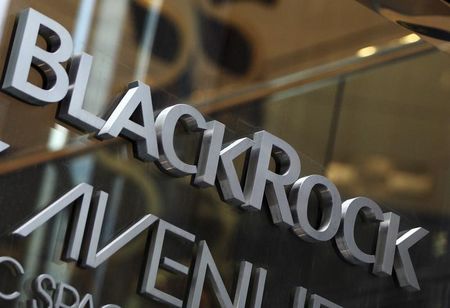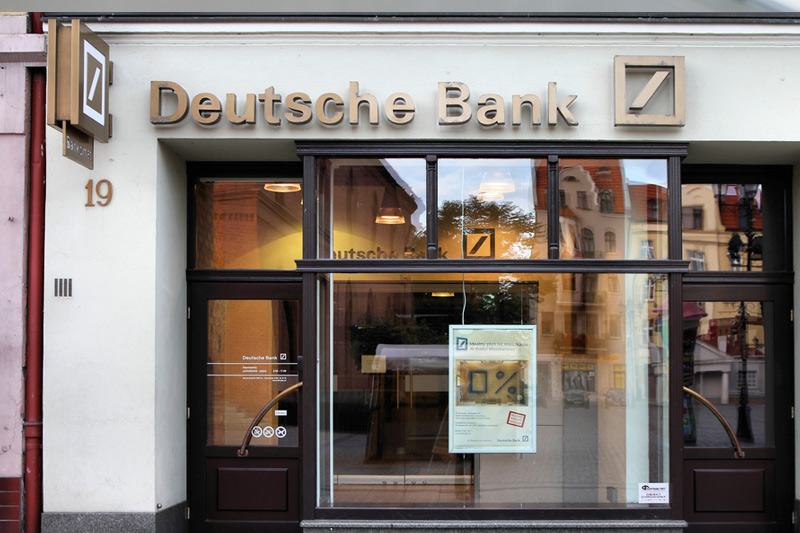By Ashley Lau NEW YORK (Reuters) - U.S. investors who believe the dollar's 2014 surge will continue are pouring money into exchange-traded funds that invest in foreign markets but hedge the currency part of the bet.
BlackRock Inc (N:BLK), WisdomTree Investments Inc (O:WETF) and Deutsche Bank AG (DE:DBKGn) are among the companies starting new currency-hedged funds this year to take advantage of a flow of some $3.9 billion into currency-hedged ETFs so far this year.
There are now 35 U.S. listed currency-hedging ETFs managing $19.3 billion in assets, compared with only about $6.7 billion in assets in 2011, meaning total assets in currency hedged ETFs have nearly tripled over the past three years, according data from Lipper and ETF.com.
A currency hedged ETF strips out the foreign currency return of a given fund by investing in foreign currency forward contracts, and rolling those contracts, typically on a monthly basis.
The largest asset gatherer has been the WisdomTree Hedged Europe ETF (P:HEDJ), which since January has added about $2.6 billion, growing four-fold to $3.5 billion.
So far, the dollar's rise has made that strategy pay off handsomely. For example, investors who bet on Japanese stocks via the unhedged iShares MSCI Japan ETF (P:EWJ) have lost 0.7 percent over the past three months, as the yen sank against the dollar. Its hedged counterpart, the iShares Currency Hedged MSCI Japan ETF , is up about 12 percent.
"Sometimes currency is not that relevant in the scheme of things, but times like now, when currencies are moving very quickly...it can make all the difference," said Art Laffer Jr., a Nashville investment manager who now has about 25 percent of the global equity strategy he runs in currency hedged ETFs.
He bought the iShares Currency Hedged MSCI Germany ETF earlier this year and also owns the WisdomTree Japan Hedged Equity Fund (P:DXJ). He would hedge more of his foreign stocks portfolio if he could find more individual country funds offering that add on, he said.
DOLLAR SURGE
The U.S. dollar soared to a seven-year high against the yen last week and reached its highest level in more than two years against the euro on Thursday, Nov. 6.
"We're a couple of years into a prolonged multi-year cycle" of dollar strengthening, said Dodd Kittsley, head of ETF strategy at Deutsche Asset and Wealth Management in New York, noting that historically, periods of dollar strength and weakness run roughly 6 to 8 years long.
"We have a lot of conviction because of the massive divergence in central bank policy," he said, referring to the way the Bank of Japan and European Central Bank have signaled their intent to further monetary policy easing, at the same time that the U.S. Federal Reserve reigns in its stimulus program.
Deutsche has several currency hedged ETFs; its Deutsche X-trackers MSCI EAFE Hedged Equity ETF (P:DBEF), has nearly quadrupled in assets since January, and now holds just under $1 billion in assets.
Currency-hedged ETFs like these are mainly aimed at investors who want to bet on foreign stocks; those who are less interested in those foreign markets and just want to bet the dollar will strengthen could buy a currency-focused ETF such as the PowerShares DB Bullish Dollar Index Fund (P:UUP) or the WisdomTree Bloomberg U.S. Dollar Bullish Fund . The PowerShares Fund is up 8.13 percent so far this year, while the WisdomTree Fund is up 5.73 percent, according to Thomson Reuters data.
NOT ALL CREATED EQUAL
Still, while developed markets like Europe and Japan have proven to be attractive regions for U.S. investors to currency hedge, the same is not true of countries such as Brazil and Mexico where high interest rates can bite into the cost of currency hedging and weigh on returns.
"We haven't seen a lot of uptick in emerging markets currency hedging yet," Kittsley said. "The cost of hedging tends to be a bit more" in countries like Brazil and India, where interest rates are higher than in the U.S. The cost of currency hedging is roughly akin to the spread in interest rates between an investor's home country and the country where the currency is being hedged.
In Europe and Japan, where the interest rate differential is much smaller, the cost is trivial. In fact, with foreign interest rates lower than in the United States, investors can actually be paid slightly for the hedge when going from the euro or yen to U.S. dollars.
That's why Omaha-based Scott Kubie of CLS Investments, a registered investment advisory firm with more than $6 billion in managed assets, has decided to stay in Japan and developed Europe with his currency hedged ETFs.
"It makes more sense to do currency hedging in Europe and Japan than it does in emerging countries," said Kubie, who owns the iShares
By Ashley Lau
NEW YORK (Reuters) - U.S. investors who believe the dollar's 2014 surge will continue are pouring money into exchange-traded funds that invest in foreign markets but hedge the currency part of the bet.
BlackRock Inc (N:BLK), WisdomTree Investments Inc (O:WETF) and Deutsche Bank AG (DE:DBKGn) are among the companies starting new currency-hedged funds this year to take advantage of a flow of some $3.9 billion into currency-hedged ETFs so far this year.
There are now 35 U.S. listed currency-hedging ETFs managing $19.3 billion in assets, compared with only about $6.7 billion in assets in 2011, meaning total assets in currency hedged ETFs have nearly tripled over the past three years, according data from Lipper and ETF.com.
A currency hedged ETF strips out the foreign currency return of a given fund by investing in foreign currency forward contracts, and rolling those contracts, typically on a monthly basis.
The largest asset gatherer has been the WisdomTree Hedged Europe ETF (P:HEDJ), which since January has added about $2.6 billion, growing four-fold to $3.5 billion.
So far, the dollar's rise has made that strategy pay off handsomely. For example, investors who bet on Japanese stocks via the unhedged iShares MSCI Japan ETF (P:EWJ) have lost 0.7 percent over the past three months, as the yen sank against the dollar. Its hedged counterpart, the iShares Currency Hedged MSCI Japan ETF , is up about 12 percent.
"Sometimes currency is not that relevant in the scheme of things, but times like now, when currencies are moving very quickly...it can make all the difference," said Art Laffer Jr., a Nashville investment manager who now has about 25 percent of the global equity strategy he runs in currency hedged ETFs.
He bought the iShares Currency Hedged MSCI Germany ETF earlier this year and also owns the WisdomTree Japan Hedged Equity Fund (P:DXJ). He would hedge more of his foreign stocks portfolio if he could find more individual country funds offering that add on, he said.
DOLLAR SURGE
The U.S. dollar soared to a seven-year high against the yen last week and reached its highest level in more than two years against the euro on Thursday, Nov. 6.
"We're a couple of years into a prolonged multi-year cycle" of dollar strengthening, said Dodd Kittsley, head of ETF strategy at Deutsche Asset and Wealth Management in New York, noting that historically, periods of dollar strength and weakness run roughly 6 to 8 years long.
"We have a lot of conviction because of the massive divergence in central bank policy," he said, referring to the way the Bank of Japan and European Central Bank have signaled their intent to further monetary policy easing, at the same time that the U.S. Federal Reserve reigns in its stimulus program.
Deutsche has several currency hedged ETFs; its Deutsche X-trackers MSCI EAFE Hedged Equity ETF (P:DBEF), has nearly quadrupled in assets since January, and now holds just under $1 billion in assets.
Currency-hedged ETFs like these are mainly aimed at investors who want to bet on foreign stocks; those who are less interested in those foreign markets and just want to bet the dollar will strengthen could buy a currency-focused ETF such as the PowerShares DB Bullish Dollar Index Fund (P:UUP) or the WisdomTree Bloomberg U.S. Dollar Bullish Fund . The PowerShares Fund is up 8.13 percent so far this year, while the WisdomTree Fund is up 5.73 percent, according to Thomson Reuters data.
NOT ALL CREATED EQUAL
Still, while developed markets like Europe and Japan have proven to be attractive regions for U.S. investors to currency hedge, the same is not true of countries such as Brazil and Mexico where high interest rates can bite into the cost of currency hedging and weigh on returns.
"We haven't seen a lot of uptick in emerging markets currency hedging yet," Kittsley said. "The cost of hedging tends to be a bit more" in countries like Brazil and India, where interest rates are higher than in the U.S. The cost of currency hedging is roughly akin to the spread in interest rates between an investor's home country and the country where the currency is being hedged.
In Europe and Japan, where the interest rate differential is much smaller, the cost is trivial. In fact, with foreign interest rates lower than in the United States, investors can actually be paid slightly for the hedge when going from the euro or yen to U.S. dollars.
That's why Omaha-based Scott Kubie of CLS Investments, a registered investment advisory firm with more than $6 billion in managed assets, has decided to stay in Japan and developed Europe with his currency hedged ETFs.
"It makes more sense to do currency hedging in Europe and Japan than it does in emerging countries," said Kubie, who owns the iShares Currency Hedged MSCI Japan ETF and Deutsche X-trackers MSCI Europe Hedged Equity ETF.
About 20 percent of the international exposure in his portfolio is now currency hedged, said Kubie. "I would see us increasing it over time."

(Reporting by Ashley Lau in New York; editing by Linda Stern and John Pickering)
